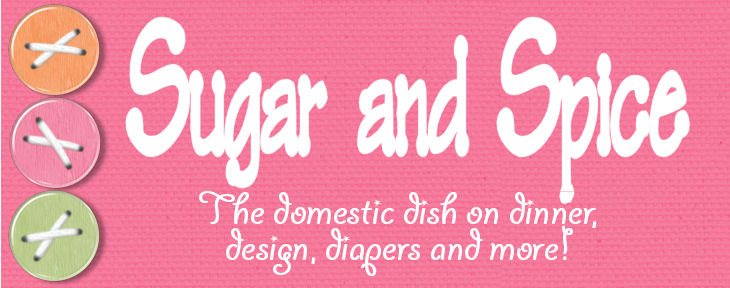Most of us wonder at some time or another if our baby’s speech and language is delayed. It is sooooo easy to compare our kids to neighbors, siblings, cousins, even strangers! Resist the temptation!!! Each child is an individual and learns in a different way and speed. And yes, boys talk later than girls…usually! Since we have a lot of babies and toddlers amongst our group, I thought I’d share some of the basics with you.
Typical Toddler Language Development:
6 Months-cooing, gurgling, babbling repetitive syllables (dadada, mamamam), making noise when alone, localizing to sounds, understanding some single words (gets excited when you say bottle, etc.), recognizes familiar voices
9-12 Months-approximating single words with intention (mama, baba), imitates sounds, understands familiar words, responds to simple requests or questions (Are you all done?)
18 Months-Speech is mostly gibberish, dropping final consonants (ha for hat), gestures with language, vocabulary of ~20 single words, identifying some body parts
24 Months-Speech is 50% intelligible to an unfamiliar listener, varies intonation to ask questions, understands many more words than expressed, vocabulary of at least 50 words, combining two words (mommy cup)
3 years-75-80% intelligible to unfamiliar listener, can produce most sounds but some sounds still substituted, follows two-step directions, understands different parts of grammar (pronouns, past tense, etc.), asks “wh” questions (what, when, who, where, why, how)
If you’re worried something’s wrong with their development:
-Trust your gut. You’re the Mom for a reason! YOU are your child’s expert!
-Talk with your pediatrician-your child’s other expert! Most pediatricians are really savvy about taking action when needed. But don’t hesitate to push if you’re worried.
-I’m a firm believer in “better safe than sorry”! Speech Pathologists work with your pediatrician to assess skills and most school districts have free preschool screenings as well as being required by law to assess skills from BIRTH! It’s better to get it checked out and know than “wait and see”. There is too much evidence that early intervention is the best! No assessment is a waste of time. Even when a child’s test is squeaky clean, I never send the parents away without recommendations and ideas to help spur on their development because they obviously came because they were worried.
-Look at your child’s overall development as well as family history. Is it only their speech or is it fine and gross motor as well? Did Mom or Dad talk late or need speech therapy? (This is not a reason to wait, though, because we know a LOT more now than we used to about speech and treatment!)
-Start early with modeling! One of the best things I did was model signs from the get-go so that at 9 months, my baby was signing “more”, “milk”, and all “all done” and could communicate with me. Read to your children and not just the words. Take their books sometimes and just point to the pictures and label things.
Language Facilitation Ideas:
Expansion-Take what they say and add a piece of info to it. Acknowledge their efforts (even when incorrect) and keep it short and on their level (two words for two year olds, three words for three year olds, etc.)
Child: ball!
Mom: Yes, red ball!
Child: doggie (pointing to a cow)
Mom: Yes, he has a tail like a doggie. That’s a cow!
Parallel Talk-give a play-by-play of what your child is doing. If they’re playing with their farm, talk about what they’re doing.
Mom: Cow eat. Horsie jump. Chicken in.
Self Talk-similar to parallel talk but stick to what YOU’RE doing.
Mom: Mommy jump. Mommy eat. I want cookies.
Follow their Lead-I find too often that parents are surprised by the idea of getting on the ground and playing with their own kids!!! Get down on their level to get joint attention and eye contact. Play with what they want to play with. Interpret their body movements and facial expressions and give verbal meaning to them. If they’re smiling and dancing, tell them, “Oh, you’re dancing! You like dancing!”
WAIT!!! Give the child room to comment, request, protest, ask for more, etc! This is the hardest one, but it’s also one of the most important ones! Watch your child for cues that they need more time to talk but not waiting too long that the tantrum comes!
Sabotage their environment-Only fill the cup up a little bit so they have to ask for more. Put their toys in plastic bins so they have to ask for help to open.
Model, Model, Model! You are their best model for language! “Motherese”, or speaking in a higher, sing-songy pitch is great, but using baby talk, or “Does widdo baby want her wawa?” doesn’t model good speech patterns. Give meaning to what you’re doing and they’ll attach meaning to what they’re doing!
Okay, I’m done! I hope I haven’t scared or overwhelmed anyone. I don’t want to preach, just share what I love! In my work, I’ve found that I can sometimes be a pariah to friends and family! I’ve been cornered at enrichment meetings and pumped for information by friends, but my own brother has my Mom ask me questions! There is so much information out there that helps us be better Moms. I just hope I added to or reinforced it!
Subscribe to:
Post Comments (Atom)


6 comments:
Thanks for all the great info!
This is fabulous--thank you!
thanks so much for the info!
Very informative. Thanks!
You definitely added to it! I loved this info. Thank you so much!
What time are your classes taught?
Post a Comment